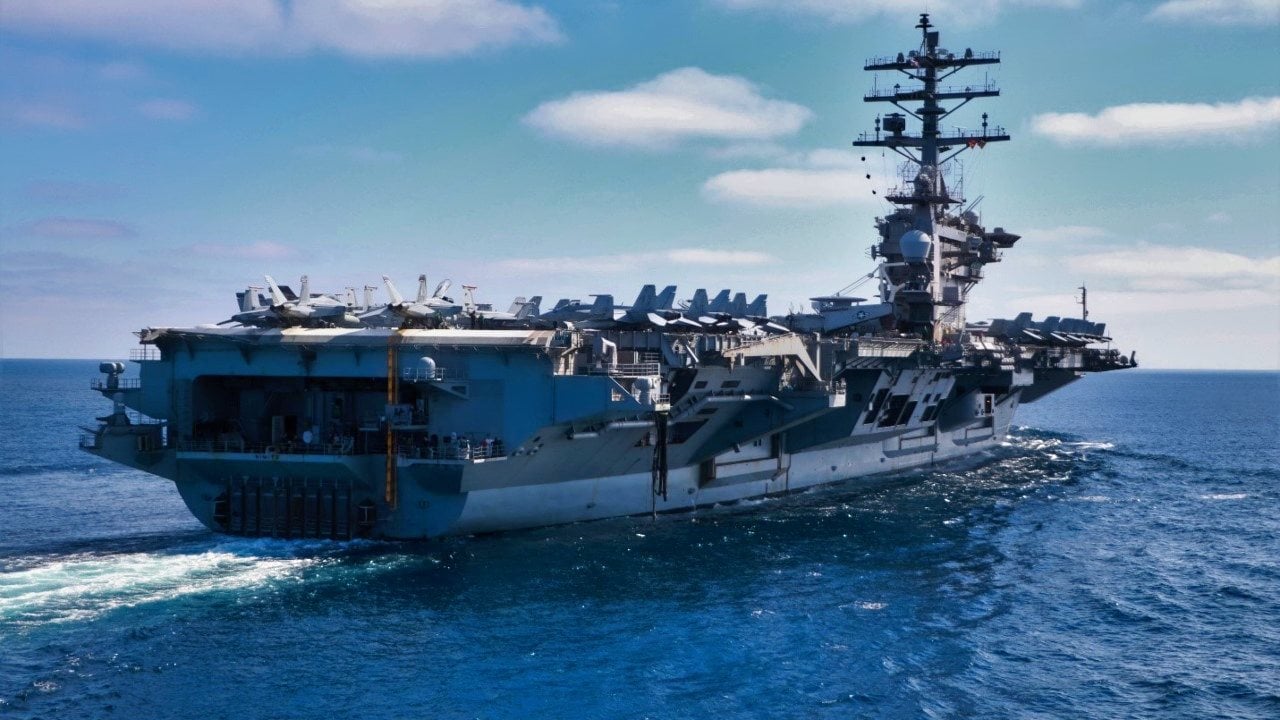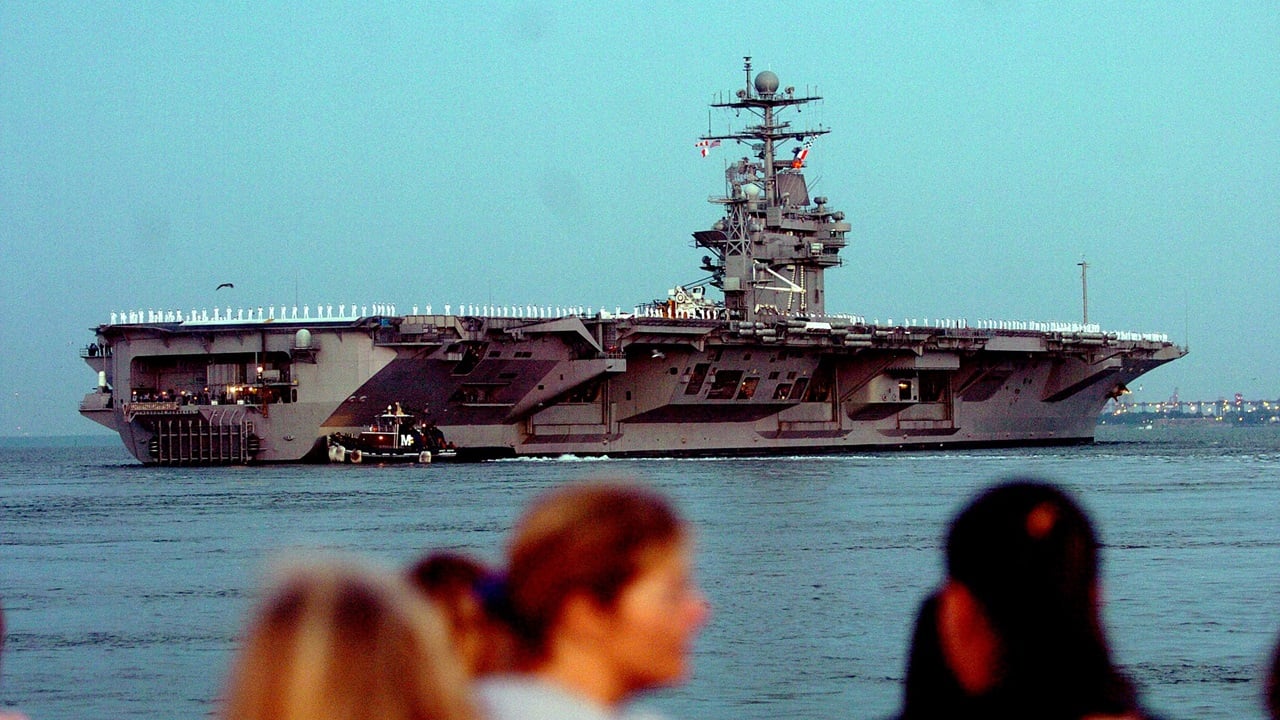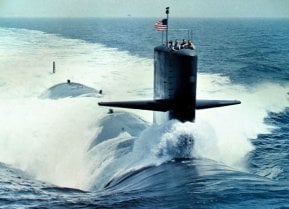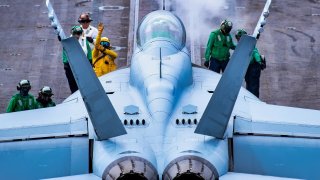The 1 Reason the Navy Is Retiring a Nimitz-Class 'Nuclear' Aircraft Carrier
USS Nimitz (CVN-68), one of the U.S. Navy's most iconic aircraft carriers, is nearing retirement after nearly 50 years of service. Commissioned in 1975, the supercarrier has been a cornerstone of U.S. naval power, participating in key deployments from the Mediterranean to the Indian Ocean.
What You Need to Know: USS Nimitz (CVN-68), one of the U.S. Navy's most iconic aircraft carriers, is nearing retirement after nearly 50 years of service. Commissioned in 1975, the supercarrier has been a cornerstone of U.S. naval power, participating in key deployments from the Mediterranean to the Indian Ocean.

-Notable for its starring role in the 1980 film The Final Countdown, Nimitz gained further attention after a tragic accident in 1981 led to military-wide "Zero Tolerance" drug policies.
-As its decommissioning approaches, Nimitz leaves behind a legacy of service and a lasting impact on military policy and popular culture.
USS Nimitz: A Legendary Supercarrier Approaches Retirement After 50 Years
The end is in sight for one of the Navy’s longest-tenured vessels.
Fittingly named for the commander of the Pacific fleet during World War II, USS Nimitz, designated CVN-68, is one of the largest warships in the world and one of the most recognizable carriers in the U.S. inventory. Measuring over 1,000 feet long, Nimitz was first commissioned in 1975 and remains in service today. But Nimitz, nicknamed “Old Salt,” is scheduled for a retirement.
Introducing the Nimitz
The funds for USS Nimitz were allocated in 1967. Remarkably, the contract cost less than $1 billion dollars – a bargain relative to the U.S. supercarriers being produced today (USS Gerald R. Ford cost over $13 billion to produce). Nimitz first deployed in 1976, and it would make two uneventful deployments to the Mediterranean before the decade was up. Nimitz would also deploy to the Indian Ocean in response to the Iran hostage crisis. Before that deployment, Nimitz was portrayed in a major motion picture. Actually, the carrier was one of the film’s primary stars, alongside Kirk Douglas and Martin Sheen.
The Final Countdown (1980) was shot aboard Nimitz, which is featured prominently in the film. The plot follows the ship as she is sucked into some sort of vortex, which transports her back in time to 1941, the day before the Japanese attack on Pearl Harbor.
For fans of naval operations and especially of naval aviation, the film is a must-see. The majority of the film is set on Nimitz, allowing viewers to see the innards of the ship, and to get a sense of what life was like aboard a supercarrier in the late Cold War. The naval aviation sequences are fantastic, too. Less stylized, and less well-remembered than those that would follow six years later in Top Gun (1986), the sequences from The Final Countdown are unvarnished. They show a variety of aircraft, including the A-6 Intruder, S-3 Viking, A-7 Corsair, F-4 Phantom, E-2 Hawkeye, and especially the F-14 Tomcat – which at one point engage in aerial combat with a pair of Mitsubishi Zeros (T-6 Texans dressed in Imperial Japanese livery).

The film memorializes Nimitz and will live on after the vessel is retired.
Accident aboard the Nimitz
In 1981, not long after The Final Countdown was released, an EA-6B Prowler crashed onto the flight deck of Nimitz. Fourteen sailors were killed while 45 more were injured, and 19 other aircraft were damaged. The Prowler had been low on fuel after a missed approach, placing increased pressure on the pilot to force the landing.
The lingering significance of the Prowler crash was President Ronald Reagan’s “Zero Tolerance” drug policy, imposed upon the entire military shortly thereafter. The Prowler pilot was found to have an unusual amount of brompheniramine in his blood. This likely had no influence on the crash, but it pushed the media to focus on drug use aboard Nimitz. A subsequent investigation found that several of the sailors on hand that night had marijuana in their systems.
Nimitz, which is rated for a 50-year lifespan, has been serving for 48 years. It will retire soon.
About the Author: Harrison Kass, Defense Expert
Harrison Kass is a defense and national security writer with over 1,000 total pieces on issues involving global affairs. An attorney, pilot, guitarist, and minor pro hockey player, Harrison joined the US Air Force as a Pilot Trainee but was medically discharged. Harrison holds a BA from Lake Forest College, a JD from the University of Oregon, and an MA from New York University. Harrison listens to Dokken.
Image Credit: Creative Commons.


